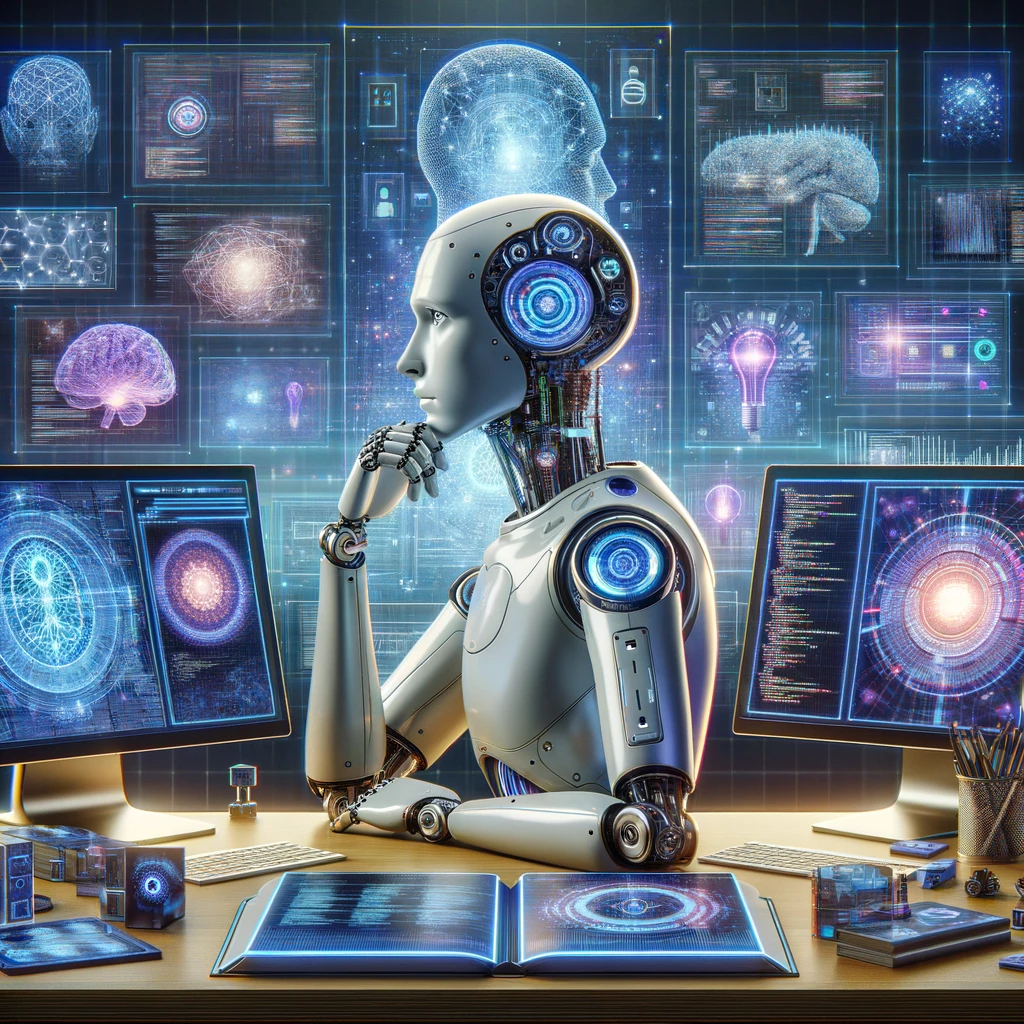What do you understand by Artificial Intelligence?
Admin / February 17, 2024

Introduction to Artificial Intelligence
Artificial Intelligence (AI) stands at the forefront of technological innovation, reshaping our world with capabilities that stretch beyond human limitations. AI refers to the simulation of human intelligence in machines that are programmed to think like humans and mimic their actions. The term can also apply to any machine exhibiting traits associated with a human mind, such as learning and problem-solving. This transformative technology has evolved from a mere concept to a fundamental part of everyday life, driving change across industries and societies.
The Core Technologies Behind AI
Machine Learning Explained: At the heart of AI's capabilities is machine learning (ML), a subset of AI that enables machines to improve at tasks with experience. ML algorithms use statistical methods to enable computers to 'learn' from data, adjusting actions without being explicitly programmed for every contingency.
Neural Networks and Deep Learning: Neural networks, inspired by the human brain's architecture, are crucial for developing deep learning models. These networks process information through layers of interconnected nodes, or "neurons," facilitating complex decision-making and pattern recognition.
Natural Language Processing (NLP): NLP allows computers to understand, interpret, and generate human language. This technology powers chatbots, translation services, and voice-activated assistants, making human-machine interaction more natural and intuitive.
Applications of AI in Daily Life
From the convenience of smart assistants to the life-saving potential of healthcare innovations, AI's applications are vast and varied. Autonomous vehicles promise to revolutionize transportation, while AI in healthcare is making strides in diagnostics, treatment planning, and patient care. In business, AI-driven data analysis offers unprecedented insights, automating routine tasks and personalizing customer interactions.
The Ethical Considerations of AI
As AI becomes more integrated into our lives, ethical concerns come to the forefront. Issues surrounding privacy, bias, and the future of employment challenge us to balance innovation with responsibility. Ensuring AI's ethical development requires transparent practices, equitable algorithms, and a commitment to minimizing harm.
AI and Education
AI's impact on education offers personalized learning experiences and administrative efficiency. By tailoring content to individual learning styles and needs, AI can enhance educational outcomes. Additionally, automating administrative tasks allows educators to focus more on teaching and less on bureaucracy.
The Role of AI in Healthcare
In healthcare, AI is a game-changer, offering tools for earlier diagnosis, personalized treatment, and efficient patient monitoring. AI-driven analytics can sift through vast amounts of data to identify patterns invisible to the human eye, revolutionizing disease diagnosis and drug discovery.
AI in Entertainment and Media
The entertainment and media industries have embraced AI for content creation, personalized recommendations, and immersive virtual reality experiences. AI algorithms curate content tailored to individual preferences, enhancing user engagement and satisfaction.
The Future of AI and Emerging Technologies
As AI continues to evolve, its convergence with technologies like quantum computing and cybersecurity promises to tackle complex challenges and safeguard our digital world. Ethical AI development remains a priority, ensuring that advancements benefit humanity while mitigating risks.
Challenges Facing AI
Despite its potential, AI faces technical, ethical, and regulatory challenges. Balancing innovation with societal impacts, ensuring equitable access, and developing robust legal frameworks are critical for AI's positive evolution.
Artificial Intelligence and the Job Market
The integration of AI into the workforce sparks debates over job displacement and the creation of new employment opportunities. Emphasizing reskilling and adapting to new technologies is essential for navigating the changing job landscape.
AI Research and Development
Leading research institutions and breakthroughs highlight the dynamic field of AI research. The open-source movement accelerates innovation, allowing for collaborative development and widespread access to cutting-edge technologies.
Public Perception and Acceptance of AI
Building trust in AI systems and educating the public on their benefits and limitations are crucial for widespread acceptance. Dispelling myths and highlighting AI's positive impacts can foster a more informed and receptive society.
AI for Good: Social and Environmental Impact
AI offers solutions to some of the world's most pressing challenges, from environmental conservation to disaster response. Leveraging AI for social good demonstrates its potential to drive positive change and improve lives.
The Global AI Landscape
The global landscape of AI is marked by rapid development and international cooperation. As countries vie for leadership in AI technology, fostering collaboration and establishing global norms are vital for harnessing AI's full potential.
Artificial Intelligence in Space Exploration
AI's role in space exploration is expanding, from enhancing satellite imaging to autonomously navigating Mars rovers. These advancements promise to deepen our understanding of the universe and streamline mission planning.
The Intersection of AI with Other Technologies
AI's integration with blockchain, IoT, and augmented reality opens new possibilities for secure, interconnected, and enhanced digital experiences. These synergies pave the way for innovative applications and solutions.
Conclusion and Future Outlook
Artificial Intelligence is not just a technological marvel but a catalyst for societal transformation. As we stand on the brink of AI's limitless potential, the commitment to responsible development will determine its impact on future generations. Embracing AI's possibilities while addressing its challenges offers a pathway to a more efficient, equitable, and enlightened world.